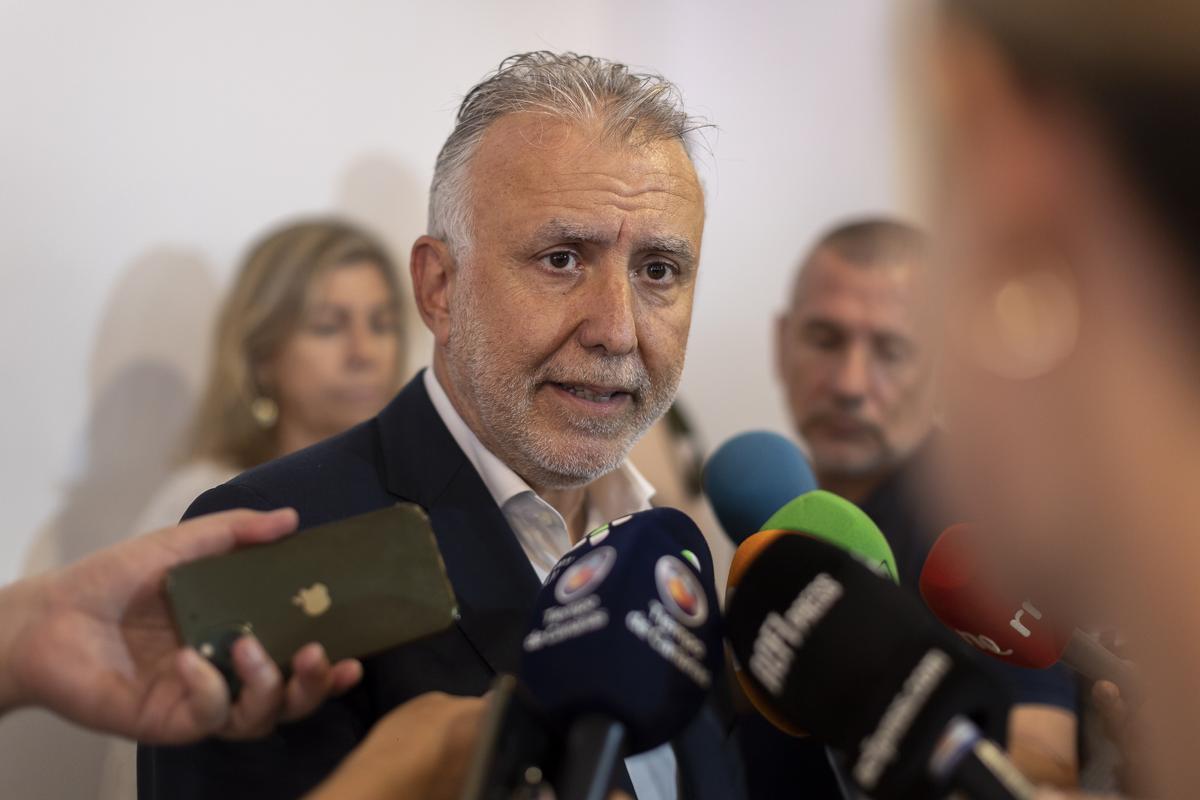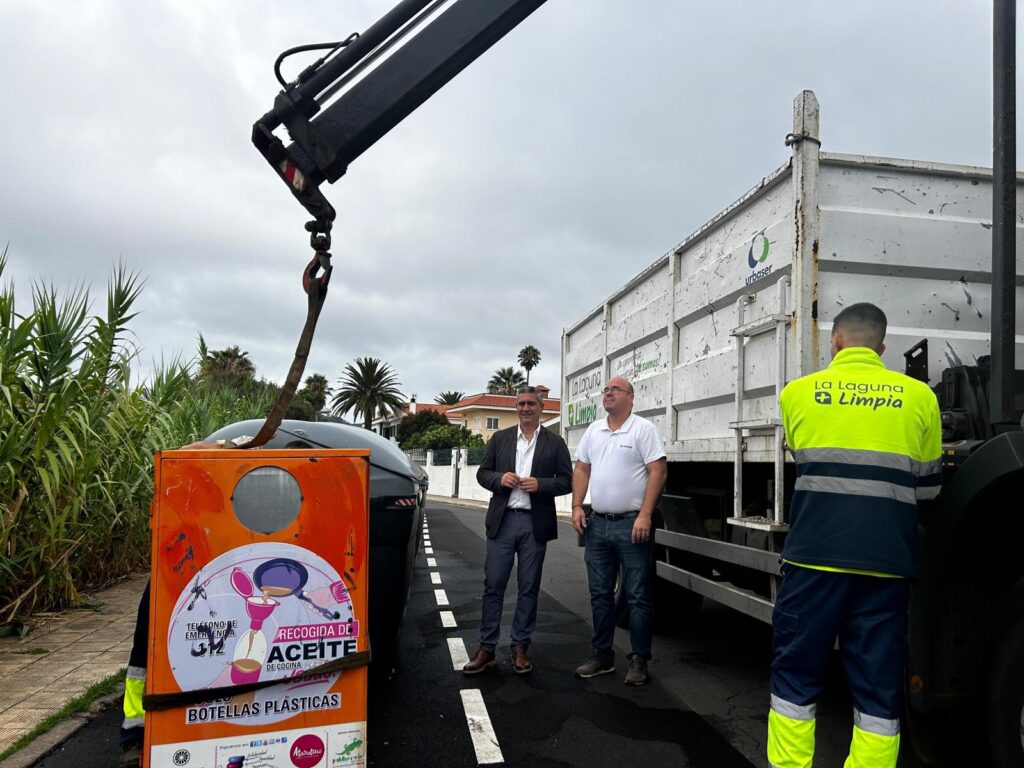The People’s Party still does not have a clear stance on the reform of the immigration law for the mandatory distribution of the best unaccompanied migrants among all autonomous communities, as indicated on Thursday by some of its national leaders.
One day after the sectoral conference in Tenerife where representatives of the regional governments of this party also avoided defining their position on this legal reform, and only agreed to the voluntary reception of 400 boys and girls currently under the care of either Canarias (300) or Ceuta (100), the party leadership has also chosen to maintain an ambiguous response when the central Government submits to Congress in the coming days the proposal agreed with the government of the Islands. “We will analyse the text in depth and then decide,” stated on Thursday the deputy Elías Bendodo, deputy secretary for Autonomous Policy of the party and who on Thursday acted as spokesperson to assess this issue.
Both Bendodo in his statements and other party leaders in conversations with journalists made it clear, in any case, that the proposal is not valid in the terms agreed between Canarias and the State and that it requires much greater specificity, especially in aspects such as the state funding that will accompany that mandatory distribution plan. But beyond this fundamental reservation, the party’s leadership and the parliamentary group in Congress will decide on the reform of the immigration law after hearing the positions and explanations of the regions they govern, after analysing these, in turn, the text delivered to them by the Government on Wednesday.
Unique Account
[–>
The PP focused on Thursday on giving a very unique account tailored to its arguments about the outcome of the summit in Tenerife and left as the central message the “solidarity” demonstrated by its regions for having agreed to assume part of the relocation of 400 minors. According to the conservatives, that was the central issue discussed at the sectoral conference, putting in the very background and as something still very distant from their immediate agenda the reform of the immigration law.
At the same time, the political consequences of a more than likely rupture between the PP and Vox in the five co-governing communities, following the conservatives’ acceptance of welcoming minors in those territories despite the warning from the far-right party, have prevailed in the national political and media debate above the situation in Canarias, and the attempts by the central and Canarian governments to find a formula to ease the emergency in the Islands. The PP was more focused on managing that crisis with Vox on Thursday than on explaining what they will do when the state proposal on the distribution of minors comes.
The party leadership considers that its communities demonstrate with the agreement of the sectoral conference for the distribution of 400 minors, already committed previously, that they are willing to show solidarity with Canarias, but for now, they refuse to endorse the reform for mandatory distribution. And like these PP territories did at the Tenerife summit, the party and its parliamentary group in Congress will wait to delve deeper into the proposal claiming that they only got to know it since Wednesday.
“Yesterday they presented a draft,” limited to state the president of the PP, Alberto Núñez Feijóo in an informal conversation with journalists in Congress, ignoring that the parliamentary spokesperson, Miguel Tellado, already received the proposal over two weeks ago during the round of contacts with the Minister of Territorial Policy, Ángel Víctor Torres, and the President of Canarias, Fernando Clavijo, with the parliamentary groups to gather support.
Without Instructions from Feijóo
[–>
Elías Bendodo had stated in the morning feeling “proud” that the regions governed by his party had supported in a “unanimous” way welcoming migrant minors and that “the decision made by the regional governments also fills the national leadership of the PP with satisfaction.” Both he and other leaders stated that, although Feijóo had been in contact with the regional presidents of the party and knew what their representatives would defend at the Children and Adolescents sectorial, “he did not give instructions” either to accept the reception of the 400 minors agreed upon, nor on the stance to take regarding the proposal for mandatory distribution.
Several party sources pointed out that the Government’s proposal “is not fleshed out” and they will wait to hear the explanations that the autonomous communities of the PP transmit to them in this regard in order to take a stance.

GRAFCAN1838. LAS PALMAS DE GRAN CANARIA (SPAIN), 11/07/2024.- The Minister of Territorial Policy and Democratic Memory, Ángel Victor Torres, assesses the prospects of moving forward with the reform of the Immigration Law regarding the reception of minors following the positions expressed by the autonomous communities at the Sectoral Conference on Children in Tenerife. EFE/Quique Curbelo / Quique Curbelo
Excuses
[–>
From the central Government and from the PSOE, however, it was considered that the PP “is giving all kinds of excuses” to end up rejecting the measure, both in the territories and in Congress. Minister Torres was very critical of the Popular Party on Thursday and did not hide his disappointment with the outcome of the Tenerife summit, insisting that the reform of the immigration law is the “only solution” to definitively resolve the situation of unaccompanied migrant minors and not the “patch” that the PP says, accusing them of competing with Vox to see “who is more unsupportive”.
He emphasized that what has been accepted by the regional governments is a “measure that will take months to be effective”, while the legislative initiative would be “immediate, agile, effective”, since, in addition to being accompanied by funding, it would allow, once approved, “the minors who have entered the Canary Islands in those 15 days would leave within 15 days”.
He also stressed, contrary to what the Popular Party has argued, that they had the “bulk” of the draft reform of the law “weeks ago”, except for the “latest contributions from some political groups” introduced to further delimit issues related to Civil Protection or territorial control.
“They are clearly excuses to try to pretend that they have been supportive when they have not been,” Torres criticized, insisting that “if the PP were on board, we would do it already, by royal decree or whatever” and it would come into effect this same month of July. That is why he has called on all parliamentary groups to support the reform, especially the PP for governing in most of the autonomous communities. “Today what we have to achieve is for the PP to say yes in the next few hours and days,” he stressed in an interview on Ser radio.
The PSOE spokesperson in Congress, Patxi López, echoed the same message and said that “we will try to convince the PP until the last minute”. “Enough of finding excuses” to reject the reform that activates the mandatory distribution of migrant minors, said López, who believes that “when there are more than 3,000 children who cannot be adequately cared for in the Canary Islands, accommodating 347 seems shameful and incomprehensible.”
“I can’t understand how anyone can say no to a proposal that goes beyond solidarity, that speaks of humanity and for which there are no excuses,” he said before arguing that “when the Canary Islands started to exceed its reception resources, it started talking to NGOs, municipalities to find housing for reception, to find answers and solutions, and it cannot be that communities with several million inhabitants say they cannot take in 300 minors.”
The party that continues to oppose the agreed transfers on Wednesday and the possibility of making them in a regulated and mandatory manner by law is still Junts. Their spokesperson in Congress, Miriam Nogueras, stated that “solidarity is sometimes confused with abuse and imposition” and that the agreed distribution “between the PP and the PSOE, Catalonia once again becomes the most strained community as always,” referring to the 31 minors who will be transferred to that territory.
[–>
Nogueras once again demanded the exclusion of Catalonia from the mandatory distribution planned in the legal reform as a condition for possible support from Junts, something that the Government has ruled out. On the other hand, the spokesperson for Bildu, Mertxe Aizpurúa, said that “this is a matter of human rights and something has to be done,” confirming the fundamental support for the legal reform that the group already communicated to Torres and Clavijo on June 25th.
Subscribe to continue reading
















